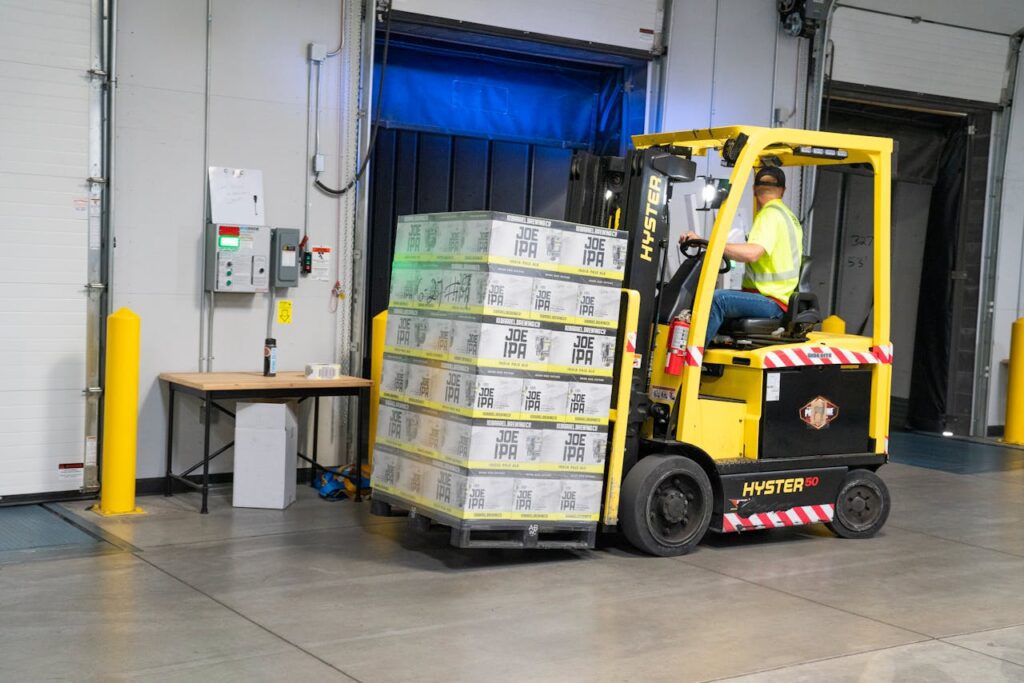Warehouses are no longer just places to store goods—they’ve become data-driven ecosystems. From inventory tracking and automation to employee performance metrics and AI-powered logistics, every process now generates data. As warehouses grow more reliant on technology, ethical challenges naturally arise. Who decides how this data is used? Is it fair, secure, and transparent? That’s exactly why your warehouse needs a data ethicist. A data ethicist ensures that the warehouse’s digital transformation aligns with responsible practices. They help balance efficiency with fairness, innovation with privacy, and analytics with accountability. In a fast-paced logistics world, having someone who can navigate the ethical side of data isn’t just smart—it’s essential.
Read also: AI-Powered Warehouses Set New Standards for 2025 Operations
Understanding the Role of a Data Ethicist
A data ethicist is a professional who helps organizations navigate the complex intersection of data usetechnology, and moral responsibility. In a warehouse setting, this role ensures that data-driven decisions are fair, transparent, and respect the rights of both employees and customers. They aren’t just about stopping bad practices—they’re about encouraging better ones.
Rather than acting as a roadblock, a data ethicist collaborates with warehouse managers, IT teams, and analysts to build policies and systems that align with ethical standards. They ask the tough questions: Is this AI model biased? Are we tracking too much information? Do workers know how their data is used?
Why a Warehouse Needs a Data Ethicist
It’s easy to assume that ethics belongs to the medical or legal fields, but warehouses have their own unique challenges. Warehouses collect vast amounts of data about workers every day—from performance metrics and movement tracking to facial recognition used for access control. Then there’s customer data tied to logistics, delivery, and supply chain activities.
When these data sets are misused, mishandled, or collected without proper consent, trust erodes. Employees may feel like they’re under constant surveillance. Customers might worry about data leaks. Regulatory issues could pile up. Ethical lapses not only hurt morale—they hurt business.
Data Is Not Just a Number Game
The efficiency of modern warehouses often hinges on algorithms. Machines decide which items go where, how quickly an employee should move, and whether someone’s productivity is lagging. But behind every number is a person. A data ethicist helps warehouse teams remember that.
Without ethical oversight, it’s easy to slide into unfair practices. For example, using tracking data to penalize workers without considering external factors like machinery delays or layout issues. Or letting predictive analytics make hiring and firing decisions without human review.
A data ethicist ensures the humanity behind the data isn’t lost in pursuit of optimization.
Balancing Surveillance and Trust
Surveillance technology is common in warehouses—cameras, RFID trackers, wearable sensors. While these tools improve safety and productivity, they can also make employees feel constantly watched. When workers believe their privacy is being invaded, it affects trust and job satisfaction.
A data ethicist brings perspective to this delicate balance. They guide how to implement surveillance ethically—by minimizing invasiveness, ensuring transparency, and setting clear boundaries. They help communicate what data is collected and why, transforming surveillance from a threat into a shared tool for improvement.
Supporting Employee Rights
Employees in warehouses may not always be aware of how their data is being used. From wearable tech that monitors fatigue to heat sensors tracking movement, the line between helpful and invasive can get blurry.
A data ethicist serves as an advocate for worker rights in the digital age. They ensure that employees are informed and consent to data collection. They recommend ways to anonymize data when possible and protect personal information. And they work with HR teams to integrate ethical data use into policies and training programs.
Ethics-Driven Decision-Making Builds Long-Term Value
Short-term gains achieved by squeezing every bit of data might look good on paper. But long-term success relies on sustainable, fair practices. A data ethicist contributes to smarter decision-making by asking not just “Can we?” but “Should we?”
Their presence fosters a culture where ethical thinking is built into every process, not just tacked on after something goes wrong. This forward-thinking mindset creates value that grows over time—through stronger teams, fewer legal issues, and improved public perception.
Integrating a Data Ethicist into Your Warehouse Team
Hiring a data ethicist doesn’t mean adding red tape. It means integrating someone who understands the nuances of both technology and people. They collaborate with IT, HR, operations, and leadership to build a warehouse culture where data works for people, not against them.
The ideal data ethicist is a blend of strategist, communicator, and ethical watchdog. They ask questions others may overlook and connect the dots between tech and humanity. And while their role might be new to your warehouse, the benefits of having them around are timeless.

More Than Stacks of Goods and Forklifts
Warehouses are more than stacks of goods and forklifts—they are data-rich environments where decisions impact real lives. As warehouses grow more reliant on analytics, automation, and AI, ethical oversight becomes essential. That’s why your warehouse needs a data ethicist. By ensuring fairness, protecting privacy, and guiding responsible use of technology, a data ethicist doesn’t slow down progress—they make sure it’s sustainable and just. In today’s world, where trust and transparency matter more than ever, your team must prioritize someone who actively upholds ethical data practices—it’s no longer a luxury. It’s a necessity.
Author’s bio
Jane Miller is a tech-savvy logistics writer with a passion for ethical innovation in supply chains. She’s a consultant at Best US Moving and likes to explore how data and ethics shape the future of warehouse operations.

